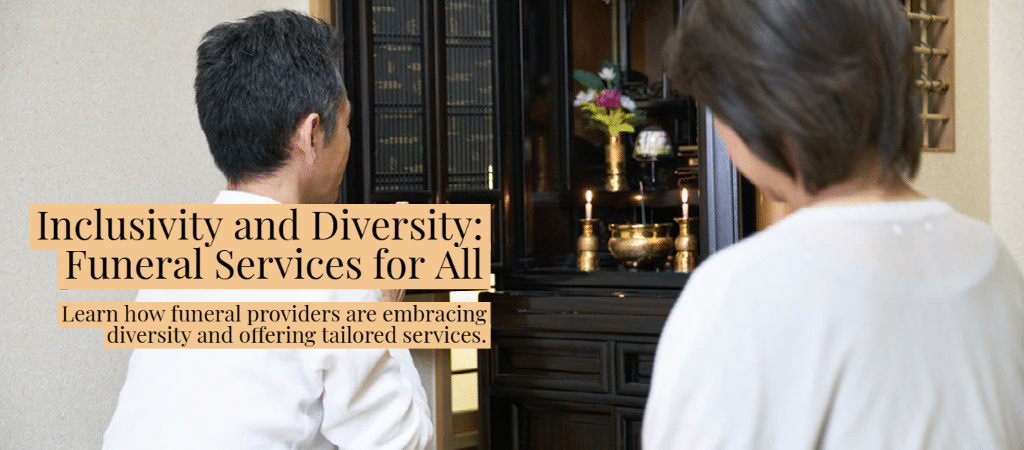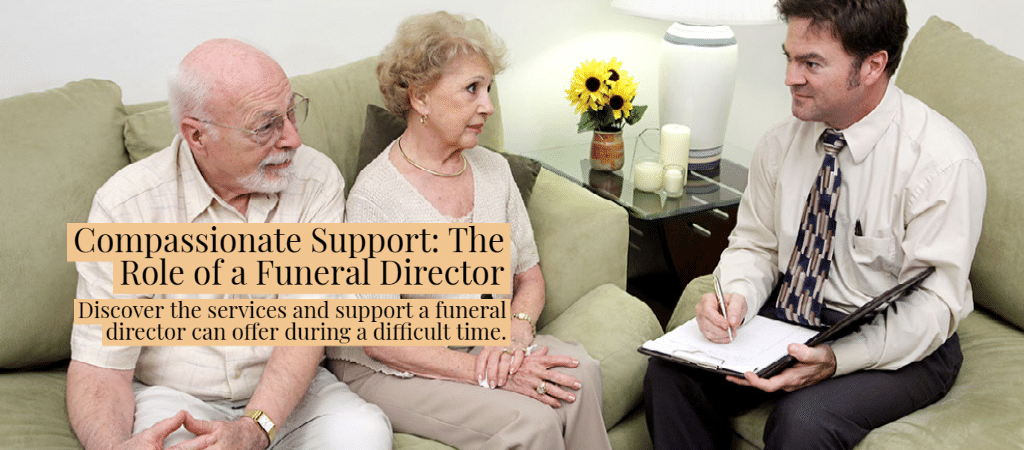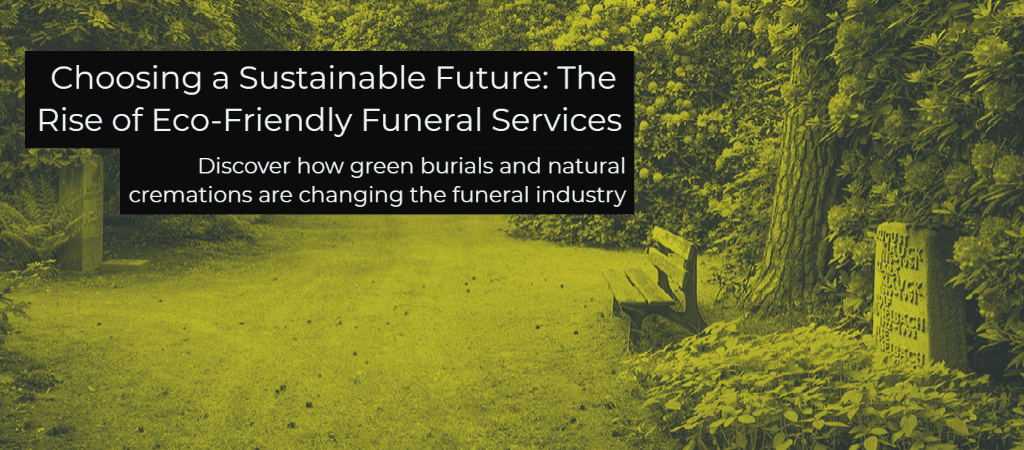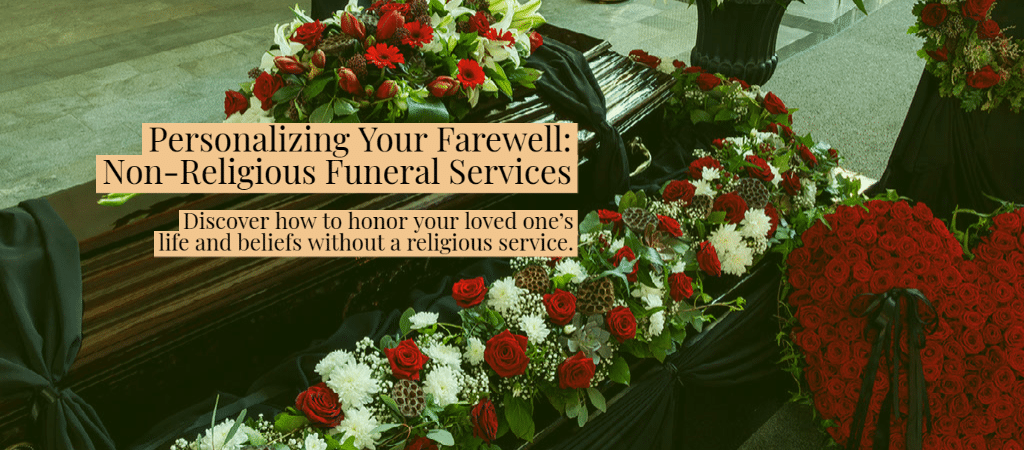
Imagine you are planning a funeral for your loved one who passed away in a foreign country. You want to honor their culture and beliefs, but you don’t speak the language or know the customs. You feel lost and overwhelmed by the unfamiliar procedures and paperwork. How can you find a funeral service provider who can help you navigate this difficult situation?
This is a scenario that many families face in today’s increasingly diverse and globalized world. According to the U.S. Census Bureau, more than 67 million Americans speak a language other than English at home, and more than 9 million Americans live abroad. As a result, funeral service providers have to adapt their service offerings to accommodate the diverse needs and preferences of their clients.
In this article, we will explore how funeral service providers are changing their service offerings to serve diverse populations. We will look at some of the challenges and opportunities they face, as well as some of the best practices and solutions they use. We will also discuss how translation services play a vital role in facilitating communication and understanding between funeral service providers and their clients.
If you are interested in learning more about how funeral service providers are serving diverse populations, or if you need translation services for your funeral needs, read on to find out more.
Increasing Demand and Declining Availability of Burial Plots
Funeral service providers face a significant challenge in accommodating the increasing demand for burial plots and the rapidly declining availability of burial space. Population growth and aging are the primary drivers of this demand, with more people requiring burial plots as populations continue to increase. The baby boomer generation’s aging also leads to a surge in the number of people requiring burial plots. Urbanization and land scarcity are other factors contributing to the declining availability of burial space. Cultural and religious preferences also play a role in the increasing demand for burial plots, and without proper planning, regulations can help address the issue of limited burial space.
Funeral Service Providers Meeting Houston’s Diverse Needs
Houston, Texas, is a city renowned for its diversity, creating a demand for funeral services and cemeteries that respect and honor the customs and traditions of different cultures and religions. Funeral service providers in Houston offer a variety of options that reflect the religious diversity of the city. With 53% of its residents identifying as Christian, 18% unaffiliated, 7% Muslim, 4% Hindu, 2% Buddhist, 1% Jewish, and less than 1% Sikh, Jain, Baha’i, Zoroastrian, or other faiths, Houston has a rich and diverse religious landscape.
Certified Translation Services
Funeral service providers face language barriers when serving diverse populations. Many families may not speak English fluently or may prefer to communicate in their native language. This can make it difficult for funeral service providers to effectively communicate with their clients and provide them with the services they need. Fortunately, certified translation services can help bridge this gap by providing accurate and reliable translations of important documents and communication.
Certified translation services involve a rigorous process of translation and review that ensures accuracy and completeness. They are typically provided by professional translators who are certified by a recognized translation organization. Funeral service providers can use certified translation services to translate a range of documents, including death certificates, funeral service programs, obituaries, and other paperwork. By using certified translation services, funeral homes can ensure that their clients fully understand the services and options available to them, as well as any associated costs and legal requirements.
Funeral service providers must be aware of the legal requirements when transporting human remains internationally, including the shipping of cremated remains and ashes. Various documents must be translated into English and certified by a qualified translator. Certified translation services are essential tools for funeral service providers who want to serve diverse populations effectively.
Funeral Service Providers Meeting the Changing Preferences of Consumers
Funeral service providers are responding to the changing preferences of consumers when it comes to end-of-life care. Today’s consumers want personalized and meaningful funeral services that reflect the life and personality of their loved ones. Funeral service providers are offering a wider range of services and options that cater to the changing preferences of consumers.
One trend that has emerged in recent years is the rise of eco-friendly or green funeral services. As people become aware of the environmental impact of traditional burial practices, they are seeking out alternative options that are more sustainable. Funeral service providers offer a range of eco-friendly services, such as green burials, natural burials, and cremation.
Another trend is the growing popularity of non-religious or secular funeral services. Funeral service providers are offering services that cater to this demographic, including personalized ceremonies that reflect the beliefs and values of the deceased, without any religious overtones. These services may include readings, music, and other elements that reflect the life and personality of the deceased, as well as opportunities for family and friends to share memories and stories.
Personalization is another key trend in the funeral industry. Consumers are looking for unique and personalized funeral services that reflect the personality and interests of their loved ones. Funeral service providers are offering a range of personalized services, such as themed funerals, custom caskets or urns, and video tributes.
In addition to these trends, funeral service providers are also working to embrace cultural diversity and provide services that meet the needs of different ethnic and cultural groups. This is particularly important in cities like Houston, where there is a large and diverse population with a range of cultural and religious traditions.

Funeral Service Providers Meeting Houston’s Diverse Needs
Houston, Texas, is a city known for its diversity, with a diversity score of 95 out of 100. This diversity creates a demand for funeral services and cemeteries that respect and honor the customs and traditions of different cultures and religions. Funeral service providers in Houston are offering a variety of options that reflect the religious diversity of the city. Houston has a rich and diverse religious landscape, with 53% of its residents identifying as Christian, 18% unaffiliated, 7% Muslim, 4% Hindu, 2% Buddhist, 1% Jewish, and less than 1% Sikh, Jain, Baha’i, Zoroastrian, or other faiths.
In order to meet the needs of this diverse population, funeral service providers are offering a range of services that reflect different cultural and religious traditions. For example, they may offer services that include special music or prayers, or that follow specific burial or cremation customs. Funeral service providers may also have bilingual staff or offer interpretation services to ensure effective communication with clients who may not speak English fluently.
Certified Translation Services
Language barriers can pose a significant challenge for funeral service providers when serving diverse populations. Many families may not speak English fluently or may prefer to communicate in their native language. This can make it difficult for funeral service providers to effectively communicate with their clients and provide them with the services they need.
Fortunately, certified translation services can help bridge this gap by providing accurate and reliable translations of important documents and communication. Certified translation services provide a level of assurance that the translation is accurate and reflects the original document. They are typically provided by professional translators who are certified by a recognized translation organization.
Funeral service providers can use certified translation services to translate a range of documents, including death certificates, funeral service programs, obituaries, and other paperwork. By using certified translation services, funeral homes can ensure that their clients fully understand the services and options available to them, as well as any associated costs and legal requirements
Language barriers can pose a significant challenge for funeral service providers when serving diverse populations. Many families may not speak English fluently or may prefer to communicate in their native language. This can make it difficult for funeral service providers to effectively communicate with their clients and provide them with the services they need.
Fortunately, certified translation services can help bridge this gap by providing accurate and reliable translations of important documents and communication. Certified translation services provide a level of assurance that the translation is accurate and reflects the original document. They are typically provided by professional translators who are certified by a recognized translation organization.
Funeral service providers can use certified translation services to translate a range of documents, including death certificates, funeral service programs, obituaries, and other paperwork. By using certified translation services, funeral homes can ensure that their clients fully understand the services and options available to them, as well as any associated costs and legal requirements”
Certified translation services are not only beneficial for families who are planning funerals for their loved ones, but they are also important for funeral service providers. By offering certified translation services, funeral homes can demonstrate their commitment to providing high-quality and culturally sensitive services to all their clients.
Furthermore, it is important to note that not all translation services are created equally. Certified translation services are distinct from non-certified translation services, as they involve a rigorous process of translation and review that ensures accuracy and completeness. Certification may involve a statement of accuracy signed by the translator, an affidavit, or a notarized certification.
In some cases, certified translation services may be required by law, particularly for legal or government documents. For example, if a family member dies in a foreign country and their remains need to be transported back to the United States, various documents must be translated into English and certified by a qualified translator. In these situations, funeral service providers must be aware of the legal requirements and ensure that they work with certified translation providers who can meet these requirements.
In addition to certified translation services, funeral service providers may also offer bilingual staff or interpretation services. This can help families who prefer to communicate in their native language or who may not be fluent in English. Bilingual staff and interpretation services can facilitate communication between the funeral service provider and the family and ensure that the family fully understands the services and options available to them.

Funeral Service Providers Meeting the Changing Preferences of Consumers
As society continues to evolve, so do the preferences of consumers when it comes to end-of-life care. Today’s consumers are looking for personalized and meaningful funeral services that reflect the life and personality of their loved ones. They want to celebrate the life of the person they lost, rather than just mourn their passing. Funeral service providers are responding to this demand by offering a wider range of services and options that cater to the changing preferences of consumers.
One trend that has emerged in recent years is the rise of eco-friendly or green funeral services. As more people become aware of the impact of traditional burial practices on the environment, they are seeking out alternative options that are more sustainable. Funeral service providers are offering a range of eco-friendly services, such as green burials, natural burials, and cremation.
Another trend is the growing popularity of non-religious or secular funeral services. As the number of people who identify as unaffiliated or atheist grows, funeral service providers are offering services that cater to this demographic. These services may include personalized ceremonies that reflect the beliefs and values of the deceased, without any religious overtones.
Personalization is another key trend in the funeral industry. Consumers are looking for unique and personalized funeral services that reflect the personality and interests of their loved ones. Funeral service providers are offering a range of personalized services, such as themed funerals, custom caskets or urns, and video tributes.

How 24 Hour Translation Services Can Help You with Certified Translation
At 24 Hour Translation Services, we understand the challenges that funeral service providers face when serving diverse populations. As a professional translation company, we specialize in providing accurate and reliable certified translation services for a wide range of documents, including death certificates, funeral service programs, obituaries, and other paperwork.
Our team of certified translators is highly skilled in translating documents accurately while ensuring cultural sensitivity and confidentiality. We are dedicated to providing our clients with the highest quality translation services and are committed to meeting their specific needs and requirements.
If you need certified translation services for your funeral needs or have any questions about how we can assist you, please contact us today. We are available 24 hours a day, seven days a week to provide you with the support and guidance you need during this difficult time.
Conclusion
As the funeral industry continues to evolve, funeral service providers are faced with a range of challenges and opportunities. By offering personalized and eco-friendly services, embracing cultural diversity, and utilizing certified translation services and other tools, funeral service providers can ensure that they meet the changing needs and preferences of their clients.
Certified translation services play a vital role in facilitating communication and understanding between funeral service providers and their clients, particularly in situations involving language barriers or international arrangements. Funeral service providers must be aware of the legal requirements and ensure that they work with certified translation providers who can meet these requirements.
Overall, funeral service providers have an important role to play in helping families celebrate the lives of their loved ones in a meaningful and personalized way. By embracing diversity, promoting inclusivity, and providing a range of services and options, funeral service providers can help families navigate the difficult process of end-of-life care with compassion and understanding.
Funeral service providers are facing a range of challenges in today’s diverse and globalized world. However, they are also presented with many opportunities to adapt their service offerings to meet the changing needs and preferences of their clients. By offering a wider range of services and options, funeral service providers can help families celebrate the life of their loved ones in a way that is meaningful and personalized. Additionally, by utilizing certified translation services and other tools, they can ensure effective communication with clients, regardless of their language or cultural background. As the funeral industry continues to evolve, it will be important for funeral service providers to stay attuned to changing trends and to adapt their services accordingly.
Frequently Asked Questions
Eco-friendly funeral services refer to burial or cremation practices that are more sustainable and have a lower environmental impact than traditional methods. These may include green burials, natural burials, and cremation. They are gaining popularity as more people become aware of the impact of traditional burial practices on the environment and seek alternative options.
Yes, funeral service providers are offering non-religious or secular funeral services that cater to the demographic of people who identify as unaffiliated or atheist. These services may include personalized ceremonies that reflect the beliefs and values of the deceased without any religious overtones.
Funeral service providers can use certified translation services to translate important documents such as death certificates, funeral service programs, obituaries, and other paperwork. Certified translation services are provided by professional translators who are certified by a recognized translation organization and ensure accuracy and completeness of translations.
Depending on the circumstances, it may be possible to arrange funeral services within 24 hours of a loved one’s death. Funeral service providers may offer emergency services to accommodate such situations.
Funeral service providers must be aware of the legal requirements when transporting human remains internationally, including the shipping of cremated remains and ashes. Various documents must be translated into English and certified by a qualified translator.
Funeral service providers are offering a range of services that reflect different cultural and religious traditions, such as special music or prayers, or that follow specific burial or cremation customs. They may also have bilingual staff or offer interpretation services to ensure effective communication with clients who may not speak English fluently.
Funeral service providers may offer services specifically tailored to those in nursing homes or receiving palliative care. These may include pre-planning services and bereavement support.
A green burial ground is a cemetery that emphasizes the use of environmentally friendly burial practices, such as using biodegradable materials and avoiding embalming fluids. It differs from a traditional cemetery in that it has a lower environmental impact and is often less formal.
Palliative care is specialized medical care for people with serious illnesses that focuses on providing relief from symptoms and improving quality of life. It can be an important part of end-of-life care and may be provided in hospice settings. Funeral service providers may work closely with palliative care providers to ensure that end-of-life wishes and preferences are respected.
Translation agencies can provide certified translation services to help bridge language barriers between funeral service providers and clients. They ensure that important documents and communication are accurately and reliably translated.
A funeral director is responsible for coordinating and overseeing funeral services. They may offer a range of services, including pre-planning services, casket or urn selection, and assistance with legal and administrative requirements.
Pre-planning funeral services can provide peace of mind for individuals and their families. It allows individuals to make their wishes known and ensure that their final arrangements align with their values and beliefs. Pre-planning also helps alleviate financial burden on families during a difficult time.
Grief counseling is a type of therapy that helps individuals cope with the emotional and psychological effects of loss. Funeral service providers may offer grief counseling services or refer clients to professionals who specialize in grief counseling.
es, there are eco-friendly options for urns and caskets, such as those made from biodegradable materials like bamboo, willow, or cardboard. These options have a lower environmental impact than traditional materials like metal or hardwood.
Cremation is the process of reducing a body to ashes through high heat. It differs from traditional burial in that it does not involve burying a body in the ground. Cremation may be a more eco-friendly option and can provide greater flexibility in terms of memorialization.
Funeral service providers may offer bereavement support services, such as grief counseling, support groups, and memorialization services. They can also provide guidance on coping with loss and offer resources for dealing with the practical and emotional aspects of grief.
Yes, birth certificates and other important documents such as death certificates and marriage certificates can be translated for use in funeral services. Funeral service providers may work with certified translation services to ensure that all necessary documents are accurately translated into the required languages. This can be particularly important in situations where family members or loved ones may be traveling from overseas to attend the funeral service, as documents may need to be translated and certified for use in different countries. Accurate translation of these documents can help ensure that all legal and administrative requirements are met and that the funeral service can proceed smoothly.

When you use the word inclusive, how is the funeral home welcoming and including the autism community and tge developmental disability community?.
The term “inclusive” in the context of funeral homes refers to the practice of accommodating the diverse needs of all individuals and families, including those with autism and developmental disabilities. Inclusive funeral homes may offer a range of services and accommodations to ensure that everyone feels welcome and comfortable during the funeral process.
For example, some inclusive funeral homes may offer sensory-friendly rooms or quiet spaces for individuals with autism or other sensory processing disorders. They may also provide accommodations such as wheelchair ramps, sign language interpreters, or braille materials for individuals with physical or visual impairments.
Inclusive funeral homes may also work with families to create personalized funeral services that reflect the unique needs and preferences of each individual. This may include incorporating special music, rituals, or other elements that are meaningful to the family.
If you’re looking for an inclusive funeral home in your area, you can start by contacting local funeral homes and asking about their accommodations for individuals with disabilities. You can also search online for funeral homes that specialize in serving diverse communities. I hope this information helps. Let me know if you have any other questions.